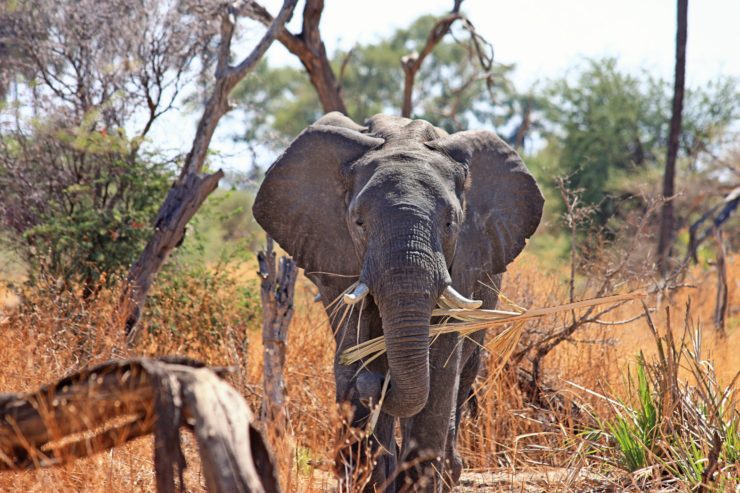Africa Uses Drones to Protect Local Elephants From Poachers

For the past few years, Bathawk Recon Drones have flown over the national parks and game reserves of Malawi, Zimbabwe and South Africa as part of their national anti-poaching campaigns. Originally produced by local South African company UAV Drone Solutions (UDS), Bathawk drones can stay aloft for two and half hours, and can transmit video feeds to ground based crews up to 15 miles away. These surveillance videos are then passed along to park rangers and local police who can then track down poachers.
According to UDS’ co-founder, Otto Werdmuller Von Elgg, although these drones have yet to lead to any arrests, they were able to reduce elephant and rhino poaching in those parks and reserves where they’ve been used. He also adds that these drones are quite effective at night, when park rangers are least likely to catch poachers on their own.
Drones and Animal Conservation
Although Bathawk drones have certainly helped rhinos and elephants in Africa, they are not the first drones to be used for animal conservation. Drones have been deployed in Sumatra to survey orangutans, in the Amazon to identify river dolphins, and in Southeast Asia, where they have been used to study whales.
Drones were even used to monitor animals that live in harsh or unstable environments. One good example was in 2015, when the Woods Hole Oceanographic Institution as well as the National Oceanic and Atmospheric Administration used their drones to study humpback whales in Patagonia and Cape Cod, and take moist breath samples. In the past, it was very difficult to get these kinds of samples due to the nature of the local environment as well as the rarity of the whales themselves. Drones have made these things possible.
The Impact of Drones
Although drones have been successfully used for animal conservation in the past, they have only been recently used for anti-poaching operations, and there are certainly plenty of challenges to deal with.
Among these challenges is cost. Keeping an anti-poaching drone crew for an entire month can cost as much as $20,000, and although these costs are going down, they are not easy to maintain.
Another challenge is that drones need to keep flying for extended amounts of time in order to catch poachers, so anti-poaching drones need to consume more energy than those which are used for scientific research due to the fact that they must be up in the air around the clock.
Despite these challenges, drones have certainly been quite helpful in keeping elephants and rhinos safe, and many local officials hope that they will be able to sustain the trend in the foreseeable future.
|